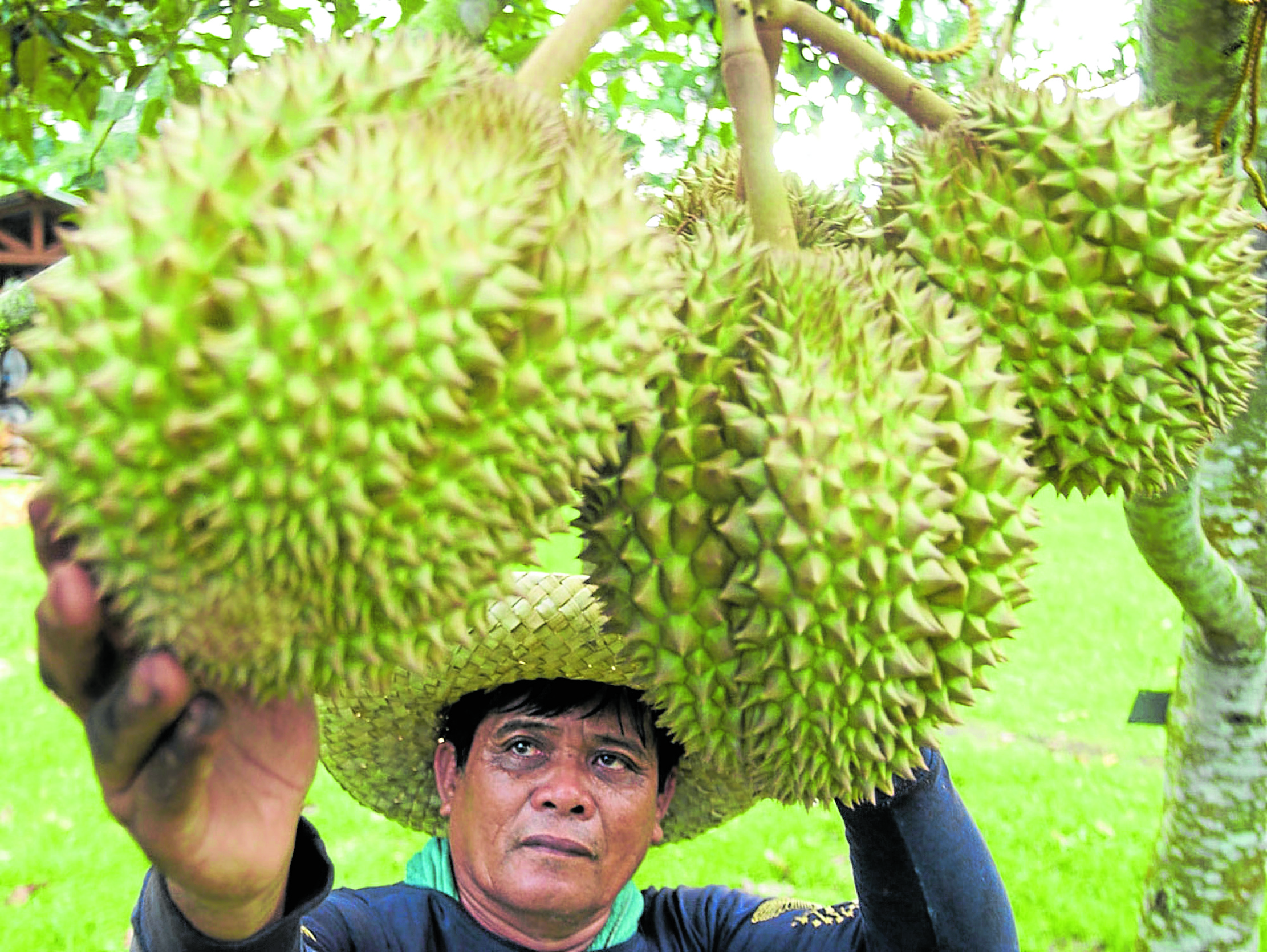Durian, PH fruits’ entry into China to help cut trade gap

NEW MARKET The Davao region, the country’s main source of durian, has reason to cheer, according to the President. —INQUIRER FILE PHOTO
BEIJING—It may well be one of the most tangible results of President Marcos’ state visit to China—and it “stinks.”
China has pledged to import durian, along with a host of other tropical fruits, from the Philippines as part of efforts to narrow the wide trade deficit between the two countries, Mr. Marcos said.
Manila and Beijing have been finalizing the rules and regulations for the importation of Philippine fruits, notably including the pungent-smelling but tasty durian, “to balance the trade situation that we have,” the President said.
“There has been created what we are now calling the ‘Durian Protocol’ because they are opening their trade to imports of durian and other agricultural products from the Philippines, so that we can regress the imbalance in our imports and exports from China,” he said in a video the Palace released to reporters late Wednesday night after his meeting with Chinese President Xi Jinping.
The President returned to Manila on Thursday night from his three-day state visit to China, currently the country’s largest trading partner.
Data from the Philippine Statistics Authority showed that the Philippine trade deficit with the Asian economic giant stood at $15.25 billion as of 2021.
$2B fruit import pledge
According to the Office of the Press Secretary (OPS), the protocols for “phytosanitary requirements for the export of fresh durians from the Philippines to China” were among the areas covered by 14 bilateral agreements signed during the President’s visit.
China pledged to import $2.09 billion worth of fruits from the Philippines, including coconut and bananas, the OPS said.
At least four companies have expressed their intent to purchase more Philippine tropical fruit products, particularly durian, during the meeting between Marcos and Chinese agribusiness leaders on Thursday morning.
Davao Region
Marcos told the Chinese business delegation that durian growers from the Davao Region, in particular, “have long waited for this opportunity and are ready to meet the demands of the Chinese market.”
The Davao Region (or Region XI) accounts for 78 percent of the country’s total durian harvest.
Several Chinese companies have expressed interest in further developing durian as a plantation crop, while others were keen to explore the coconut and livestock sectors, the OPS added.
“These will generate much-needed employment, enrich the sector’s research and development activities and capabilities, enhance domestic and international trade, and ensure food security at affordable prices,” said the President, who concurrently occupies the position of secretary of the Department of Agriculture.
Also on Thursday, Chinese companies pledged $13.76 billion worth of investments in the Philippine energy sector during a separate roundtable meeting between Marcos and Chinese energy business leaders.
In all, Marcos said, his state visit yielded about $22 billion in investment pledges, “some of [which] have already started.”
“These are pledges but these are already backed up by concrete actions,” he said.
